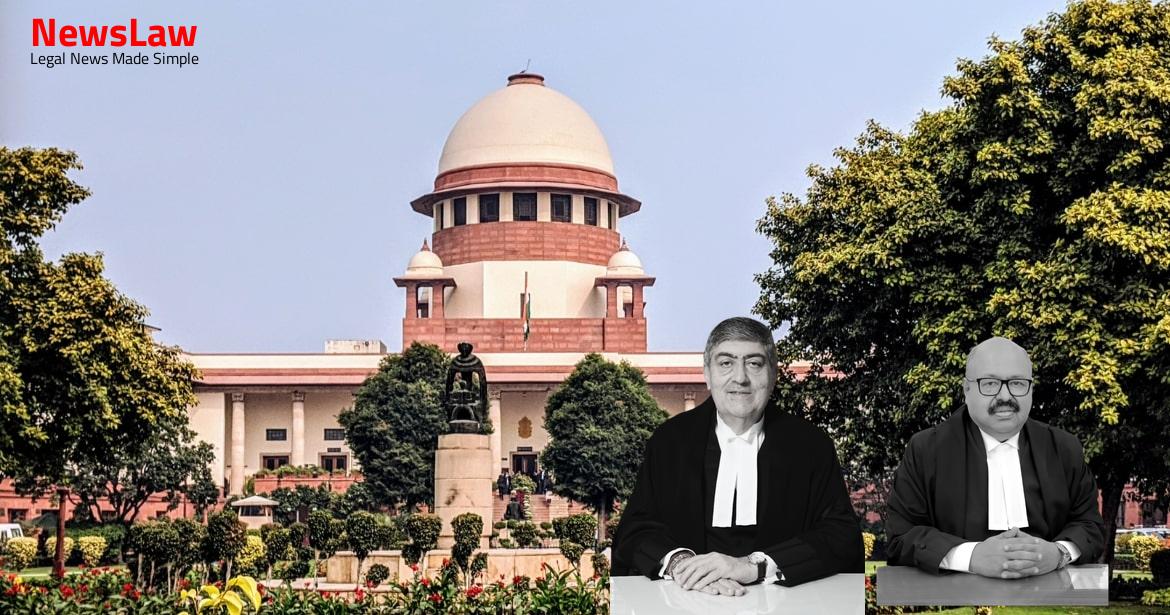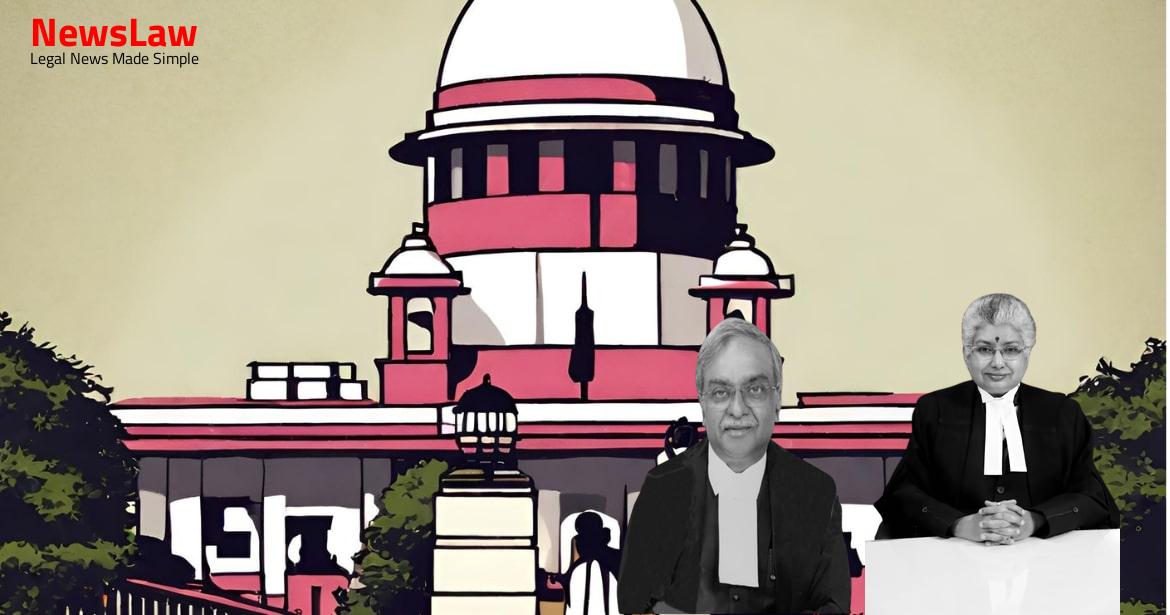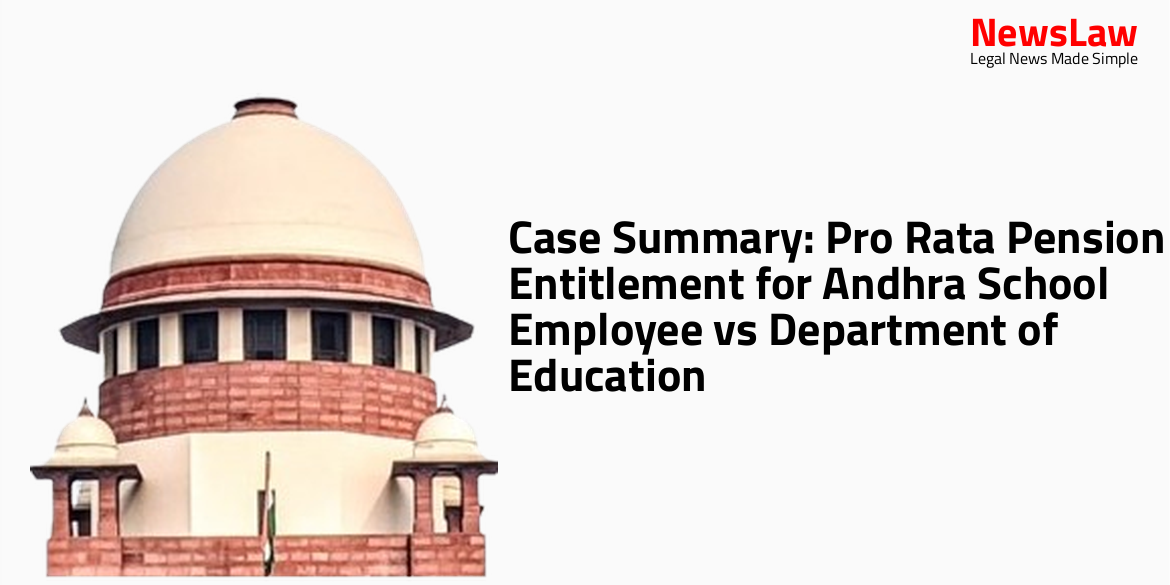Explore the detailed legal analysis regarding compassionate appointment eligibility within the context of a recent court judgment. The focus lies on clarifying the distinction between ‘permanent’ and ‘regular’ employees, shedding light on the intricacies of policy interpretation in such cases. Stay tuned to unravel the complexities of compassionate appointment criteria in the legal realm.
Facts
- The respondent’s claim for compassionate appointment was based on the demise of his father, who had served as a Driver in the Tribal Welfare Department for nearly 23 years.
- Late Shri Ranglal Shrivas was initially appointed as a work-charged employee, later becoming a permanent employee after completing more than 15 years of service.
- The respondent faced economic hardship following his father’s death, leading him to seek compassionate appointment as per the Policy of 18.8.2008.
- The Pension Rules of 1979, specifically Rule 2(c), supported the respondent’s eligibility for benefits and revision of pay post his father’s demise.
- Despite being granted ‘krammonati’ and other benefits, the request for compassionate appointment was initially rejected by the appellants in 2010.
- The High Court directed the appellants to reconsider the respondent’s case for compassionate appointment in accordance with the Policy.
- The father of the respondent had left behind an ailing wife, the respondent himself, and three daughters, highlighting the family’s financial struggles.
- The appellants’ decision to deny compassionate appointment was challenged by the respondent through a writ petition before the High Court of Madhya Pradesh.
- The writ appeal was dismissed by the Division Bench of the High Court on 2.1.2014, stating that the late father of the respondent was a permanent employee according to the Pension Rules.
- An amount of Rs. 1,00,000/- was directed to be refunded to the appellants if the respondent obtained compassionate appointment.
- The appellants agreed to the respondent’s claim for compassionate appointment on 12.2.2014, with conditions including the refund of Rs. 1,00,000 and acceptance of the offered posting.
- The wife of the deceased had already received Rs. 1,00,000/- as relief in accordance with the Policy.
- The writ petition was allowed by the Single Judge of the High Court on 19.7.2013, based on eligibility criteria for permanent employees as per the earlier judgment.
- The application of Clause 12.1 of the Policy was discussed, clarifying that it does not apply once an employee attains permanency under the Pension Rules.
- The appellants argued that the respondent was not a regular Government employee as per relevant rules, and compassionate appointment is based on State policy.
- An SLP was filed on 12.7.2014, with a stay on the judgment’s operation issued on 6.2.2015.
Also Read: Supreme Court Judgment on Single Till Mechanism for HRAB Calculation: A Comprehensive Analysis
Issue
- The main issue to be examined is whether the late father of the respondent was entitled to compassionate appointment as per the existing policy at the time of his demise.
- The late father was employed as a work-charged/contingency employee in the Tribal Welfare Department.
- The key focus is on determining the eligibility of the late father for compassionate appointment based on the established policy.
Arguments
- Learned counsel for the respondent emphasized that krammonati and increments were given in the present case, indicating the applicability of the benefit in question.
- However, in the order dated 7.2.2002, it was specified that the monetary krammonati granted to employees would not affect their posts.
- This specification raises a question regarding the uninterrupted nature of the benefit in relation to the posts of the employees.
Also Read: Selection and Appointment of Judicial Officers in Himachal Pradesh
Analysis
- The judgment distinguishes between ‘permanent employee’ and ‘regular employee’.
- Compassionate appointment is not an alternative to regular appointment and is not an inherent right.
- The judgment discusses the confusion regarding the scheme applicable at the time of death for compassionate employment claims.
- The classification of the late father as a permanent employee is based on completion of 15 years of service, but this does not automatically make him a regular employee.
- The Court notes the distinction between work-charged, permanent, and regular employees in the context of compassionate appointments.
- The judgment emphasizes that simply being classified as a permanent employee does not equate to being a regular employee.
- The plea to consider the deposit made with the State Bank of India in 2016 is mentioned.
- The Policy dated 18.8.2008 prohibits work-charge/contingency fund and daily wage employees from compassionate appointment.
- There is a focus on the need for the applicable policy at the time of demise to determine compassionate appointments in the absence of retrospective applicability.
- The importance of regularisation in service for entitlement to increments and other benefits is highlighted.
- Attaining the status of permanent employee entitles one only to a minimum of the pay-scale without any increments.
- Compassion appointment was examined in a recent judgment in Indian Bank & Ors. v. Promila & Anr.
- The issue of compassion appointment is no longer an open question due to the judgment in Ram Naresh Rawat v. Ashwini Ray & Ors., which clarified that ‘permanent’ classification does not equate to regularisation.
- The legal position regarding the cut-off date for the application of such schemes was settled by the judgment in Canara Bank & Anr. v. M. Mahesh Kumar.
- Family pension and terminal benefits are not a substitute for employment assistance
- Need to refer to the scheme provisions for compassionate appointment
- Unable to provide relief to the respondent due to legal constraints
- Late employee’s family has already been paid entitlement as per policy
- Amendment to policy on 18.8.2008 resulted in an increase of compassionate grant amount to Rs. 2,00,000/-
Decision
- The Circular states that cases pending before a certain date will be decided based on the directions issued for compassionate appointment on 29.09.2014.
- The respondent is directed to receive the FDR amount and any accrued interest, along with an additional amount of Rs. 1,00,000 within two months.
- If the payment is delayed, it will incur an interest rate of 12% per annum (simple interest) until the date of payment.
- The appeal is allowed, and each party will bear their own costs.
Case Title: THE STATE OF MADHYA PRADESH Vs. AMIT SHRIVAS (2020 INSC 565)
Case Number: C.A. No.-008564-008564 / 2015



